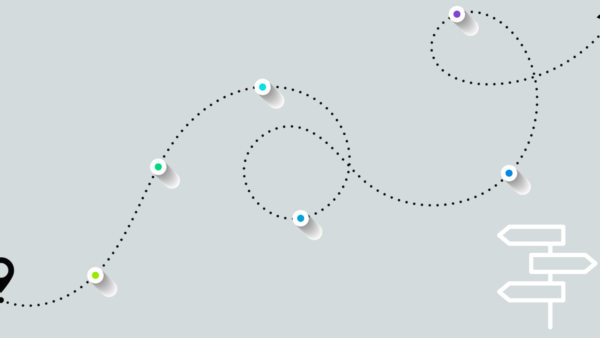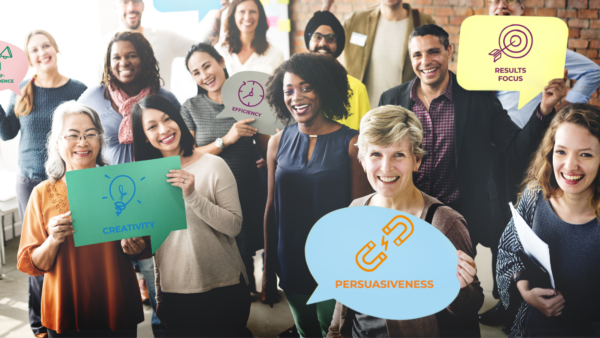A little while back I recorded a podcast on doing more of what you love – which links really closely to this blog. In fact, it should really help you to nail what your strengths are…which is essential if you’re going to do more of what you love every day.
So at Strengthscope, we define strengths as those qualities that energise you, what you are great at, or have the potential to become great at. This isn’t the dictionary definition, this is different – so we’re talking about things that get you excited, engaged, passionate, enthusiastic… ENERGISED!
It’s a really important element to the definition because, without it, we’d be left with what we’re great at, or have the potential to become great at, which is more the kind of thing you’d find in a dictionary description of the word ‘strength’. But that could bring in stuff that you’re just good at, even exceptional at, but which doesn’t energise you, maybe doesn’t interest you. It could even drain you to do it too much of the time. A classic example of this I touched on in the Doing more of what you love podcast is focusing on detail – many people have developed this as a necessary skill because it’s something that’s expected, but they don’t love it, don’t enjoy it, and would rather someone else did it given the choice. Well, that’s not a strength by this definition, it’s a skill.
Strengths, if you could include the energise part then are often driven by values – things that we hold dear and true. So one of my strengths is collaboration – I absolutely LOVE finding things in common with others and working with them on those things. I’m pretty good at it because I’ve learned skills in using the strength well and for me, it’s driven by values of ‘sharing’ and ‘connection’, so it runs REALLY deep. When I’m collaborating with someone I feel different – engaged, awake, alive, focused, STRONG, and that gives you a hint as to how to find your own strengths.
Around 2006, I worked with a team to develop a whole method for helping people find, measure and develop their strengths – that’s called Strengthscope®, the name of my company – and there are other tools out there… you know, online questionnaires and profilers, that can help you do this. But even without these, and actually, even if you have used tools like Strengthscope®, it’s still worth having more ways of exploring and discovering what strengthens you.
So here are my Top 5 tips for finding your strengths:
1. Choices
Check out day-to-day what you choose to do first, what you prioritise, what’s your go to feel-good activity or task and explore why that might be, what it is that’s drawing you towards it. People often talk about when they were children, how they just did the stuff they loved, but then life got in the way and ‘shoulds’ and ‘musts’ and ‘ought to’s’ started becoming more important in their self-talk and before long, some of the naturalness of their choices dropped away in favour of important adult things. So try and recapture that inner child and get curious about why you choose the things you do. Thinking about my collaboration strength, I know that to get energised I will almost certainly connect with someone else to get my energy going. Or if I have a choice of tasks, I’ll go to the one which I’m doing with or for someone else. That’s because I value sharing and connection and that manifests as collaboration.
2. Feelings
As you make your way through the working day and week, check in with your FEELINGS about what you’re doing, as that’s a great clue as to whether you’re using strengths or just skills. If you’re in the strengths zone, you’re more likely to be experiencing positive emotions – you’ll be happier, more relaxed and more positive when using a strength. So get good at feeling how you’re feeling – people do keep strengths diaries to help with this as it can help sort true strengths from standard skills.
3. Learning
If you’re using strengths, there’s a lot of research that shows you’ll find it easier to learn, to take on board new information and develop skill too in that area. Subjects at the University of Nebraska were given two chances at a speed reading test. Those who were average at speed reading made solid gains (66% increase in words per minute) after getting training and learning new tactics. Yet the magic happened with the above average readers. Those who had a natural strength in speed reading saw an 828% increase in the number of words read per minute.
Those who had a natural strength in speed reading saw an 828% increase in the number of words read per minute.
4. Success
So if you find that you get success when engaging in a particular activity that you’re good at it, that it feels natural, that’s a good sign of a strength. It’s not the only sign because that might just be a skill at work, but if you enjoy it too and you get feedback from others that this is like a natural talent for you, you’re in strengths territory.
5. Focus
So because strengths are usually supported by values, that is something that’s important to you, that you value, you’re more likely to stay focused, determined, driven, to persevere with it even when it’s challenging. So you won’t let it go so easily, or give up. You’ll see it through. I know this with collaboration – even if someone else starts to lose the faith a bit with something we’re working on, because I get so much energy from the opportunity to work with that person, I’ll keep going, remind them of why we’re doing this, of what we’ve achieved so far and what the prize or goal is; and often that will bring them around and I’m super-energised all over again.
So that’s it – five tips for finding and KNOWING your strengths – choices, feelings, learning, success and focus.
And why was all that important again anyway? Because when we know our strengths, we know what makes us positively different, how we can create more value for people around us and in our roles and careers, we feel better, we do better and we live better. So get strengths curious and put the lens on yourself… as well as other people around you. Strength spotting in others is a great way of learning how to do it better in yourself!










